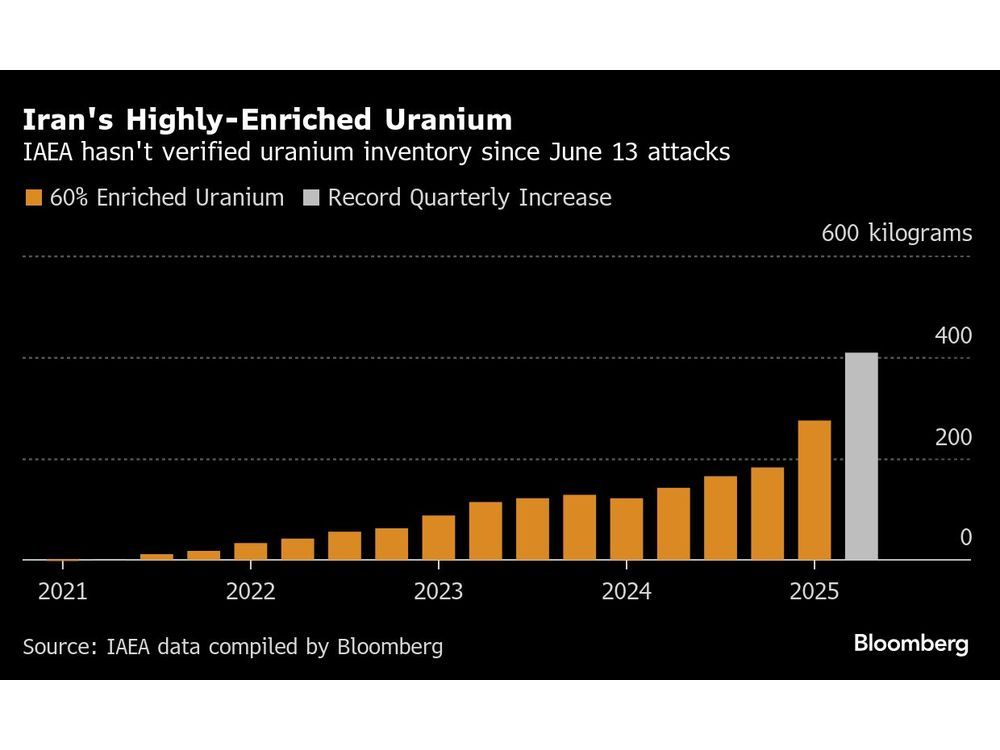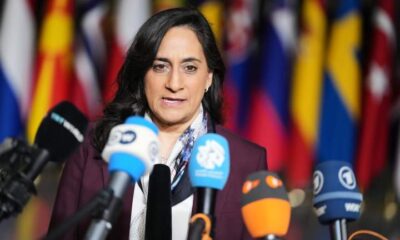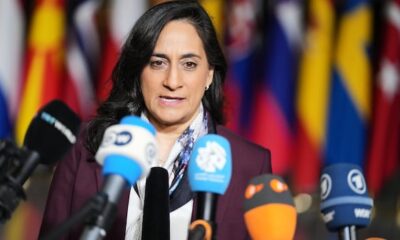Top Stories
European Powers to Refer Iran for UN Nuclear Sanctions This Week

URGENT UPDATE: European powers are set to refer Iran back to the United Nations this week, triggering the re-imposition of tougher nuclear sanctions. This development follows Iran’s failure to comply with international demands for negotiations with the United States and the return of atomic inspectors to its facilities.
Sources confirm that France, Germany, and the UK will announce their decision on either Thursday or Friday. The referral comes after Iran’s recent discussions with European and International Atomic Energy Agency (IAEA) officials. Tehran has made it clear it will not negotiate further unless its own conditions are met.
IAEA Director General Rafael Mariano Grossi expressed concern, stating, “We are not yet where I would like us to be.” These remarks were made during a series of meetings in Washington with US officials.
The referral coincides with rising tensions following Israeli and US military actions against Iran’s nuclear sites in June. These strikes have reportedly destroyed significant portions of Iran’s nuclear infrastructure and created chemical hazards, hindering the IAEA’s ability to monitor the situation effectively. Iran has not allowed inspectors to verify the status of its near-bomb-grade uranium for over 75 days.
Iran’s government insists its nuclear program is not for military purposes, a claim supported by IAEA and US intelligence reports that have found no evidence of a weapons program since the early 2000s. However, Iran has rejected negotiations with the US, citing ongoing military threats.
The urgency of the European powers’ actions stems from an impending deadline. Their right to reimpose UN sanctions will expire on October 18. The process, embedded in the 2015 Iran nuclear deal abandoned by former US President Donald Trump, requires a 30-day period to complete. If reinstated, these sanctions would mandate Iran to suspend uranium enrichment, limit its ballistic missile program, and enforce an arms embargo.
Moreover, the resurgence of sanctions would compel the EU to reactivate punitive measures against Iran’s oil industry, which could further strain the nation’s economy. In response, Iran has threatened to withdraw from the international Treaty on the Non-Proliferation of Nuclear Weapons, a move that could severely limit IAEA inspections and deepen international uncertainties regarding Iran’s nuclear activities.
This situation is exacerbated by strong opposition from China and Russia, who support Iran and argue that the European powers’ actions violate the 2015 accord. They caution that even if UN sanctions are reinstated, enforcement may not be as stringent as it once was.
As the clock ticks down to the critical deadline, all eyes are on the European powers and their next moves. The international community is anxiously watching how these developments will unfold and what implications they may have for global security.
Stay tuned for more updates on this developing story.
-

 Politics4 weeks ago
Politics4 weeks agoSecwepemc First Nation Seeks Aboriginal Title Over Kamloops Area
-

 World5 months ago
World5 months agoScientists Unearth Ancient Antarctic Ice to Unlock Climate Secrets
-

 Entertainment5 months ago
Entertainment5 months agoTrump and McCormick to Announce $70 Billion Energy Investments
-

 Science5 months ago
Science5 months agoFour Astronauts Return to Earth After International Space Station Mission
-

 Lifestyle5 months ago
Lifestyle5 months agoTransLink Launches Food Truck Program to Boost Revenue in Vancouver
-

 Technology3 months ago
Technology3 months agoApple Notes Enhances Functionality with Markdown Support in macOS 26
-

 Lifestyle3 months ago
Lifestyle3 months agoManitoba’s Burger Champion Shines Again Amid Dining Innovations
-

 Top Stories2 months ago
Top Stories2 months agoUrgent Update: Fatal Crash on Highway 99 Claims Life of Pitt Meadows Man
-

 Politics4 months ago
Politics4 months agoUkrainian Tennis Star Elina Svitolina Faces Death Threats Online
-

 Sports5 months ago
Sports5 months agoSearch Underway for Missing Hunter Amid Hokkaido Bear Emergency
-

 Politics5 months ago
Politics5 months agoCarney Engages First Nations Leaders at Development Law Summit
-

 Technology5 months ago
Technology5 months agoFrosthaven Launches Early Access on July 31, 2025





















